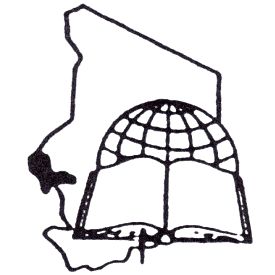The Tower of Babel
1 At first everyone spoke the same language, 2 but after some of them moved from the east and settled in Babylonia, 3-4 they said:
Let's build a city with a tower that reaches to the sky! We'll use hard bricks and tar instead of stone and mortar. We'll become famous, and we won't be scattered all over the world.
5 But when the Lord came down to look at the city and the tower, 6 he said:
These people are working together because they all speak the same language. This is just the beginning. Soon they will be able to do anything they want. 7 Let's go down and confuse them! We'll make them speak different languages, and they won't be able to understand each other.
8-9 So the people had to stop building the city, because the Lord confused their language and scattered them all over the earth. That's how the city of Babel got its name.
The Descendants of Shem
10-11 Two years after the flood, when Shem was 100, he had a son named Arpachshad. He had more children and died at the age of 600. This is a list of his descendants:
12 When Arpachshad was 35, he had a son named Shelah. 13 Arpachshad had more children and died at the age of 438.
14 When Shelah was 30, he had a son named Eber. 15 Shelah had more children and died at the age of 433.
16 When Eber was 34, he had a son named Peleg. 17 Eber had more children and died at the age of 464.
18 When Peleg was 30, he had a son named Reu. 19 Peleg had more children and died at the age of 239.
20 When Reu was 32 he had a son named Serug. 21 Reu had more children and died at the age of 239.
22 When Serug was 30, he had a son named Nahor. 23 Serug had more children and died at the age of 230.
24 When Nahor was 29, he had a son named Terah. 25 Nahor had more children and died at the age of 148.
The Descendants of Terah
26-28 After Terah was 70 years old, he had three sons: Abram, Nahor, and Haran, who became the father of Lot. Terah's sons were born in the city of Ur in Chaldea, and Haran died there before the death of his father. The following is the story of Terah's descendants.
29-30 Abram married Sarai, but she was not able to have children. And Nahor married Milcah, who was the daughter of Haran and the sister of Iscah.
31 Terah decided to move from Ur to the land of Canaan. He took along Abram and Sarai and his grandson Lot, the son of Haran. But when they came to the city of Haran, they settled there instead. 32 Terah lived to be 205 years old and died in Haran.
La tour de Babel
V. 1-9: cf. (Ps 33:10, 11. Lu 1:51.) (De 32:8. Ac 17:26.) Ac 2:1-11.1 Toute la terre avait une seule langue et les mêmes mots. 2 Comme ils étaient partis de l’orient, ils trouvèrent une plaine au pays de Schinear, et ils y habitèrent. 3 Ils se dirent l’un à l’autre: Allons! Faisons des briques, et cuisons-les au feu. Et la brique leur servit de pierre, et le bitume leur servit de ciment. 4 Ils dirent encore: Allons! Bâtissons-nous une ville et une tour dont le sommet touche au ciel, et faisons-nous un nom, afin que nous ne soyons pas dispersés sur la face de toute la terre. 5 L’Éternel descendit pour voir la ville et la tour que bâtissaient les fils des hommes. 6 Et l’Éternel dit: Voici, ils forment un seul peuple et ont tous une même langue, et c’est là ce qu’ils ont entrepris; maintenant rien ne les empêcherait de faire tout ce qu’ils auraient projeté. 7 Allons! Descendons, et là confondons leur langage, afin qu’ils n’entendent plus la langue, les uns des autres. 8 Et l’Éternel les dispersa loin de là sur la face de toute la terre; et ils cessèrent de bâtir la ville. 9 C’est pourquoi on l’appela du nom de Babel, car c’est là que l’Éternel confondit le langage de toute la terre, et c’est de là que l’Éternel les dispersa sur la face de toute la terre.
LES ANCÊTRES DU PEUPLE D’ISRAËL
DEPUIS ABRAHAM JUSQU’À JOSEPH
Ch. 11:10 à 50. (És 51:1, 2. Hé 11:13-16, 39, 40.)
Postérité de Sem
V. 10-32: cf. 1 Ch 1:17-27. Lu 3:34-36.10 Voici la postérité de Sem. Sem, âgé de cent ans, engendra Arpacschad, deux ans après le déluge. 11 Sem vécut, après la naissance d’Arpacschad, cinq cents ans; et il engendra des fils et des filles. 12 Arpacschad, âgé de trente-cinq ans, engendra Schélach. 13 Arpacschad vécut, après la naissance de Schélach, quatre cent trois ans; et il engendra des fils et des filles. 14 Schélach, âgé de trente ans, engendra Héber. 15 Schélach vécut, après la naissance d’Héber, quatre cent trois ans; et il engendra des fils et des filles. 16 Héber, âgé de trente-quatre ans, engendra Péleg. 17 Héber vécut, après la naissance de Péleg, quatre cent trente ans; et il engendra des fils et des filles. 18 Péleg, âgé de trente ans, engendra Rehu. 19 Péleg vécut, après la naissance de Rehu, deux cent neuf ans; et il engendra des fils et des filles. 20 Rehu, âgé de trente-deux ans, engendra Serug. 21 Rehu vécut, après la naissance de Serug, deux cent sept ans; et il engendra des fils et des filles. 22 Serug, âgé de trente ans, engendra Nachor. 23 Serug vécut, après la naissance de Nachor, deux cents ans; et il engendra des fils et des filles. 24 Nachor, âgé de vingt-neuf ans, engendra Térach. 25 Nachor vécut, après la naissance de Térach, cent dix-neuf ans; et il engendra des fils et des filles. 26 Térach, âgé de soixante-dix ans, engendra Abram, Nachor et Haran. 27 Voici la postérité de Térach. Térach engendra Abram, Nachor et Haran. Haran engendra Lot. 28 Et Haran mourut en présence de Térach, son père, au pays de sa naissance, à Ur en Chaldée. 29 Abram et Nachor prirent des femmes: le nom de la femme d’Abram était Saraï, et le nom de la femme de Nachor était Milca, fille d’Haran, père de Milca et père de Jisca. 30 Saraï était stérile: elle n’avait point d’enfants. 31 Térach prit Abram, son fils, et Lot, fils d’Haran, fils de son fils, et Saraï, sa belle-fille, femme d’Abram, son fils. Ils sortirent ensemble d’Ur en Chaldée, pour aller au pays de Canaan. Ils vinrent jusqu’à Charan, et ils y habitèrent. 32 Les jours de Térach furent de deux cent cinq ans; et Térach mourut à Charan.

